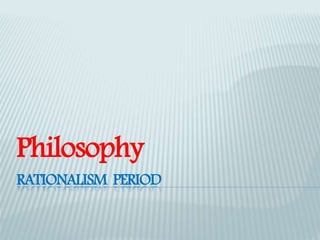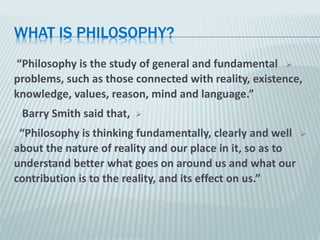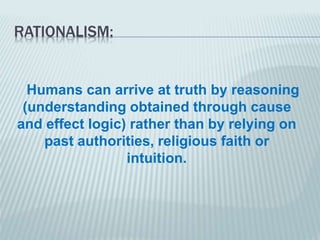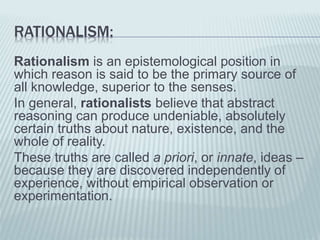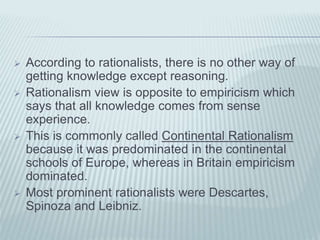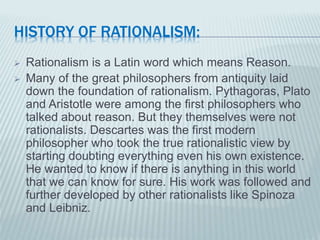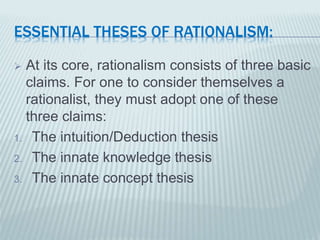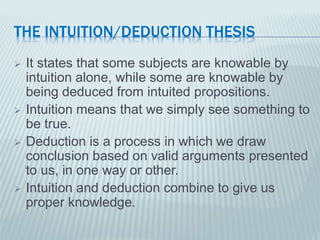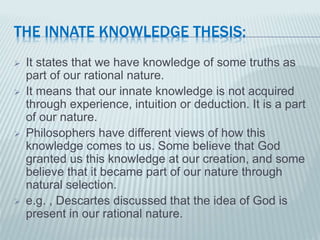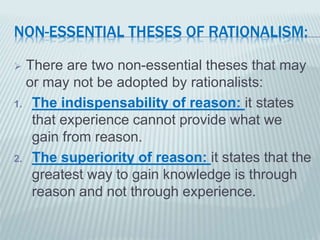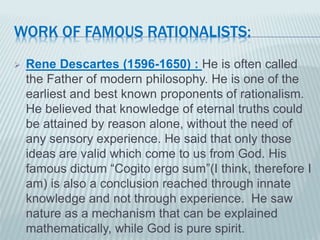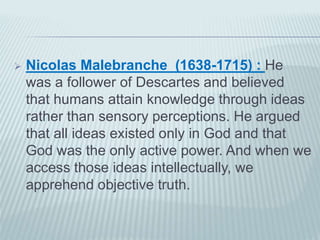This document discusses the philosophy of rationalism. Rationalism holds that reason, rather than sensory experience, is the primary source of knowledge. It emerged in the 17th century through philosophers like Descartes, Spinoza, and Leibniz, who believed that certain truths could be known intuitively or deduced logically without empirical evidence. The core theses of rationalism are that some knowledge comes from intuition, some concepts are innate rather than learned, or that we have innate knowledge from God. While rationalism dominated on the continent, empiricism was more influential in Britain. Later, Kant sought to reconcile rationalism and empiricism.
